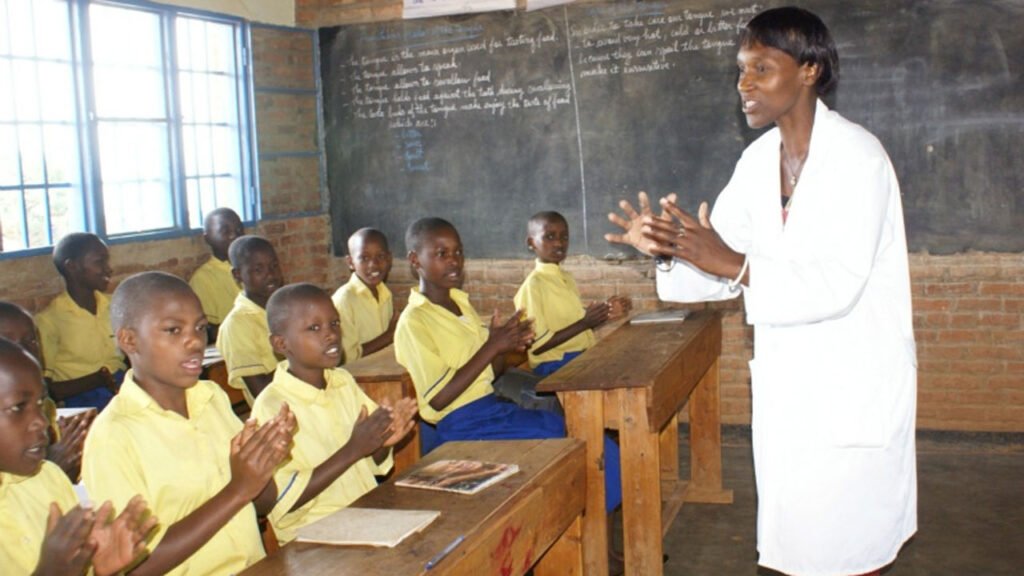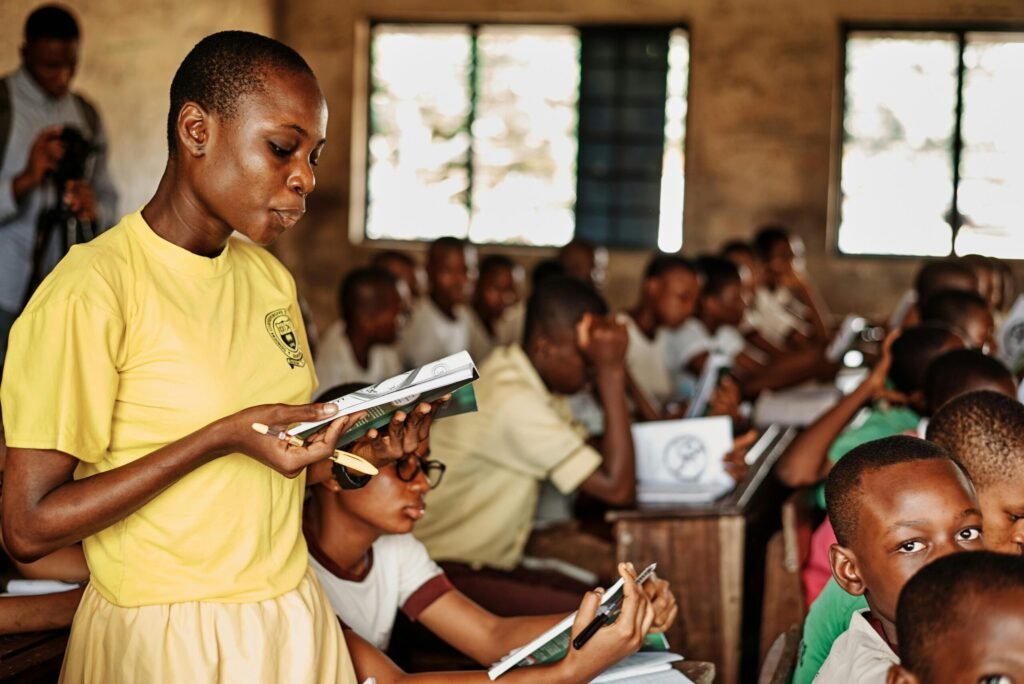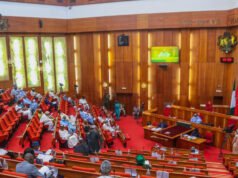Every society that dreams of prosperity invests first in the minds of its young people. In Nigeria, however, the classroom — the very engine room of human capital — is struggling to ignite. With alarming failure rates in core subjects like English and Mathematics, the nation faces a sobering reality: its workforce of tomorrow may not be equipped for the demands of today’s knowledge-driven global economy.
Across the last three years, data from the West African Examination Council (WAEC) paints a bleak picture. Between 2022 and 2025, failure rates in English and Mathematics averaged over 59 percent. In the most recent 2024/25 cycle, a staggering 73 percent of candidates failed. These are not just numbers; they represent the hopes of millions of families and the very foundation of Nigeria’s economic sustainability.
For Lagos State alone, over 26,000 students failed the 2024 WASSCE. WAEC records show that only 45.7 percent of candidates from the state’s public schools passed. That means more than half of the young people who should be preparing to enter higher institutions or technical careers are already left behind.
This collapse in learning outcomes strikes at the heart of human capital development. English is the language of communication, and mathematics is the language of logic and problem-solving. Without them, Nigeria’s youths risk being excluded from both global conversations and local opportunities.
“High failure rates suggest that many students are simply not meeting the minimum standard,” explained Nubi Achebo, director of academic planning at the Nigerian University of Technology and Management (NUTM). “The danger is that these children will carry weak foundations into adulthood, into university, and eventually into the workplace.”
The crisis is not just academic; it is generational. A country cannot reap the benefits of its demographic dividend if its youthful majority is poorly educated and unemployable.
Table of Contents

When Budgets Fail the Future
To understand why Nigeria’s classrooms are underperforming, one must follow the money — or rather, the lack of it. Over the past decade, education has consistently been underfunded.
From 2015 to 2025, Nigeria’s education budget allocation dropped from 10.75 percent of total expenditure to just 5.47 percent. In the 2024 budget cycle, only N1.59 trillion was allocated to education, representing a meagre 5.5 percent of the N28.77 trillion national budget. By comparison, UNESCO recommends between 15 and 20 percent for any nation serious about developing its human capital.
President Bola Tinubu earmarked N3.5 trillion for education in 2025, a step in the right direction, but still far below the international benchmark. The effect of this chronic underinvestment is visible in dilapidated classrooms, overcrowded schools, poorly paid teachers, and the absence of modern teaching tools.
Poor budgeting directly translates into poor outcomes. Teachers are often ill-equipped to deliver modern curricula, laboratories are empty shells, and students are left memorising theories with no exposure to practical applications. This environment breeds frustration for both learners and educators, reinforcing a cycle of mediocrity.
Jessica Osuere, CEO of RubiesHub Educational Services, argues that the emphasis on certificates over skills is one of Nigeria’s greatest educational flaws. “We have a system that is unnecessarily certificate-based. It focuses on theory, not practice. That is why we produce graduates who cannot fit into the realities of the job market,” she said.
Without adequate funding, reforms remain only on paper. The consequences are clear: graduates with weak foundations, unemployable youths, and a national workforce unprepared for the challenges of the Fourth Industrial Revolution.
Human Capital: The Missing Link in Economic Growth
Nigeria’s struggles with education are not just an education-sector problem; they are a full-blown economic crisis. Education is the backbone of human capital — the sum of knowledge, skills, health, and resilience that fuels a nation’s productivity.
In 2020, the World Bank’s Human Capital Index rated Nigeria at 0.36, meaning a child born that year would likely achieve only 36 percent of their potential productivity if current education and health outcomes persist. This is one of the lowest scores globally, highlighting the urgency of reform.

What does this mean in practical terms? It means that the doctors, engineers, teachers, and entrepreneurs of tomorrow are being prepared today with half-baked skills. It means industries requiring critical thinking, problem-solving, and digital literacy will be forced to import talent or underperform.
Stakeholders worry about a future where graduates cannot communicate effectively, where accountants cannot interpret basic data, and where engineers struggle with the fundamentals of design. The global economy is increasingly competitive; Nigeria cannot afford to lag behind because its classrooms failed to deliver.
“Curricula must evolve to reflect the realities of the modern workforce,” noted Achebo. “We must prioritise critical thinking, problem-solving, and digital literacy. Without these, our graduates will remain unemployable.”
Christopher Itua, of the Institute for Industrial Technology (IIT), suggests a more practical approach: “We need a system that integrates classroom instruction with on-the-job training. This ensures students leave school with both theoretical knowledge and practical experience.”
This integration, common in countries like Germany, creates a workforce that is not only educated but also skilled and adaptable. For Nigeria, such reforms could be the game-changer in addressing its human capital deficit.
Building Tomorrow: Solutions for a Broken System
Despite the gloomy statistics, the future is not lost. Nigeria can still rewrite its story if it commits to bold, transformative action. Experts point to several urgent interventions:
- Prioritise foundational skills: Literacy and numeracy must be the non-negotiable focus of early education. Without strong foundations, children cannot progress to more complex subjects or adapt to life’s challenges.
- Increase education funding: Meeting at least the UNESCO benchmark of 15 percent will provide the resources needed to build infrastructure, equip schools, and train teachers.
- Revamp teacher training: A well-trained teacher is the most powerful resource in any classroom. Continuous professional development, coupled with better remuneration, will attract and retain quality educators.
- Practical, skill-based learning: The system must shift from memorisation to application. Technical and vocational education should be mainstreamed, not sidelined, and curricula must be modernised to reflect 21st-century realities.
- Public-private partnerships: Companies can play a role in bridging the gap by offering apprenticeships, sponsoring school projects, and aligning curricula with industry needs.
- Community accountability: Parents, local leaders, and communities must demand quality education and hold schools accountable for results. Education is too important to be left only in the hands of the government.
As Achebo reminds us, “We are not just failing students; we are failing the future.” Without urgent reform, Nigeria risks losing its demographic advantage to a cycle of unemployment, poverty, and underdevelopment.

Conclusion
Nigeria stands at a crossroads. Its youthful population is its greatest asset, yet without quality education, that asset becomes a liability. The statistics from WAEC are more than examination results — they are a mirror reflecting the cracks in the nation’s foundation.
Fixing the classroom is not merely an education-sector challenge; it is an economic, social, and national survival imperative. To compete globally, Nigeria must invest in its children today. The price of inaction will not just be unemployment or poverty — it will be the collapse of the very promise of the nation’s future.
The message is clear: Nigeria’s human capital crisis starts in the classroom. The solution must start there, too.
Join Our Social Media Channels:
WhatsApp: NaijaEyes
Facebook: NaijaEyes
Twitter: NaijaEyes
Instagram: NaijaEyes
TikTok: NaijaEyes
READ THE LATEST EDUCATION NEWS





